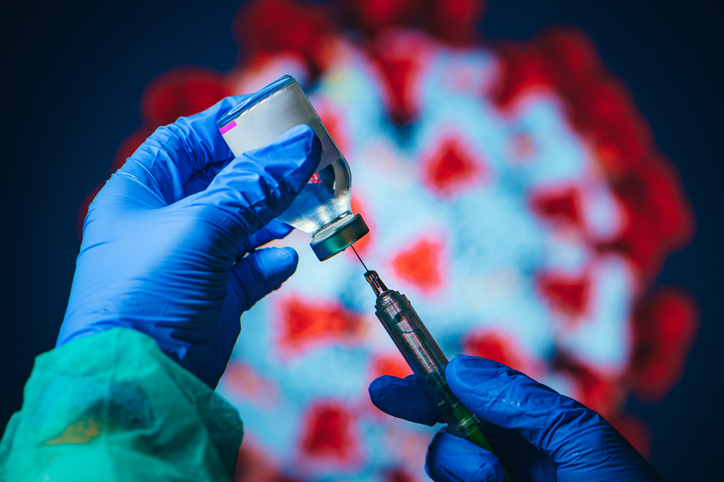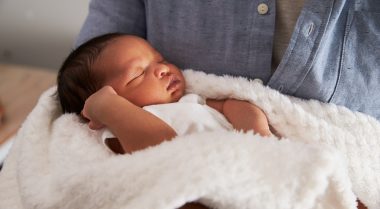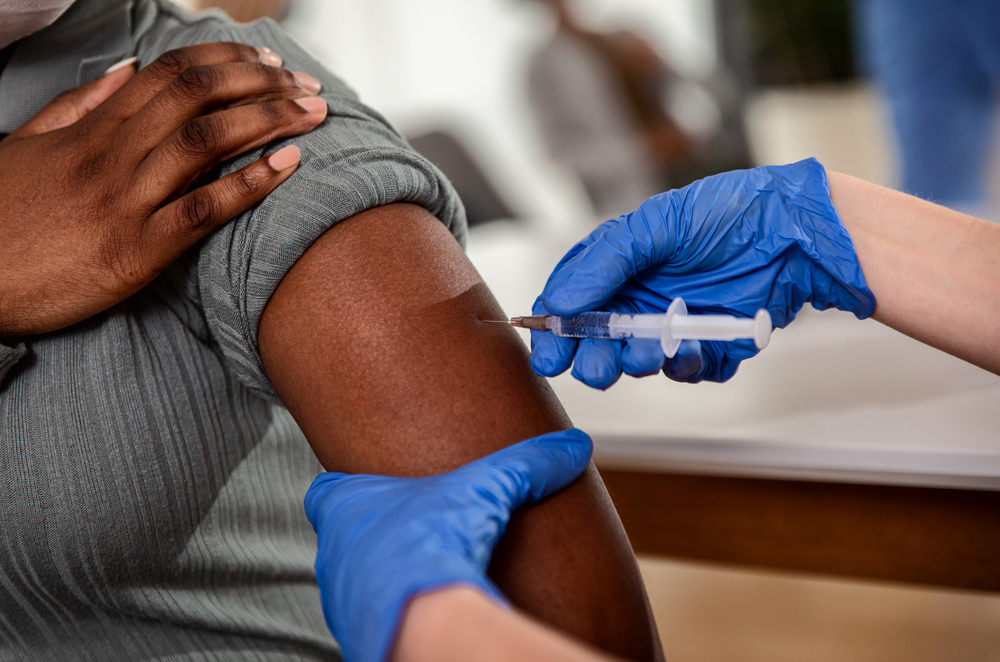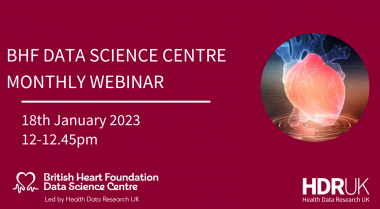Casirivimab and imdevimab in patients admitted to hospital with COVID-19 (RECOVERY): a randomised, controlled, open-label, platform trial
21 June 2022
A large-scale clinical trial of a monoclonal antibody treatment for COVID-19 showed that it could reduce deaths by 21 per cent in people who had not mounted a natural antibody response of their own.

Overview
New COVID-19-specific treatments created from monoclonal antibodies were sought to help treat those who were severely ill with the disease. Based on how they were known to work, two such antibodies, casirivimab and imdevimab were thought to be suitable for use in combination. A large-scale clinical trial of this combination showed that it could reduce deaths by 21 per cent in people who had not mounted a natural antibody response of their own.
The challenge
The outbreak of COVID-19 prompted a rapid search for treatments to reduce the severity of the disease and prevent deaths. One promising approach was to develop effective antibodies and mass-produce them. These types of treatment are known as monoclonal antibodies, which work by binding to the SARS-CoV-2 virus and reducing its ability to infect cells.
While some monoclonal antibodies had been authorised for use in certain cases, the evidence was unclear for patients admitted to hospital with COVID-19. Studies in non-hospitalised patients had shown that the treatment reduced the risk of hospitalisation or death, and a small trial in hospitalised patients showed some benefit – but other small studies showed no benefit and it was thought that outcomes might be worse for certain patients. A large trial in hospitalised patients was needed to determine definitively whether this treatment reduced mortality.
The solution
The RECOVERY trial, which is part supported by HDR UK, has tested a variety of treatments against COVID-19, recruiting over 47,000 participants across seven countries. This has yielded notable successes, including identifying the steroid dexamethasone as an effective drug for reducing deaths in people hospitalised with COVID-19.
To understand the benefits of monoclonal antibodies in hospitalised patients, the RECOVERY team tested a combination of casirivimab and imdevimab developed by Regeneron. These two antibodies target different parts of the coronavirus spike protein, so they can work effectively together.
The trial compared almost 5000 people on the combination treatment with those who received usual care alone. The patients were tested to see if they already had antibodies in their blood as part of a natural immune response to the infection.
Impact and outcomes
The trial showed that the combination treatment reduced the number of deaths by a fifth for people without a natural antibody response. This meant that there would be six fewer deaths for every 100 of these people treated. About a third of the trial participants did not have an immune response, so were most likely to be severely ill or die from COVID-19.
For people with naturally produced antibodies, the treatment had no noticeable effect. This may explain why previous, smaller clinical trials failed to see the benefit without differentiating between those who had antibodies when they entered the trial and those who did not.
These results, published in The Lancet, demonstrated a clear role for monoclonal antibodies targeting the virus spike protein in protecting some of the most vulnerable patients admitted to hospital with COVID-19.
Marion Mafham, Associate Professor at Oxford Population Health, who leads RECOVERY’s data linkage, said:
“Onsite staff were asked to collect data at 28 days about whether the patient was in hospital, discharged or had died. This data was linked with additional information from patients’ electronic health care records.
“Using the records as an additional source of data relieved the pressure from frontline health care workers, meaning they could complete a much briefer form onsite and save precious time in the midst of the pandemic.”
Impact committee
The Impact committee thought that this research was internationally important and could have a strong impact on patient care.* They also noted that the RECOVERY trial made good use of large-scale data and expertise across different disciplines.
*Whilst the combination treatment was effective initially, it was not effective for the omicron variant that became dominant later in 2021.



